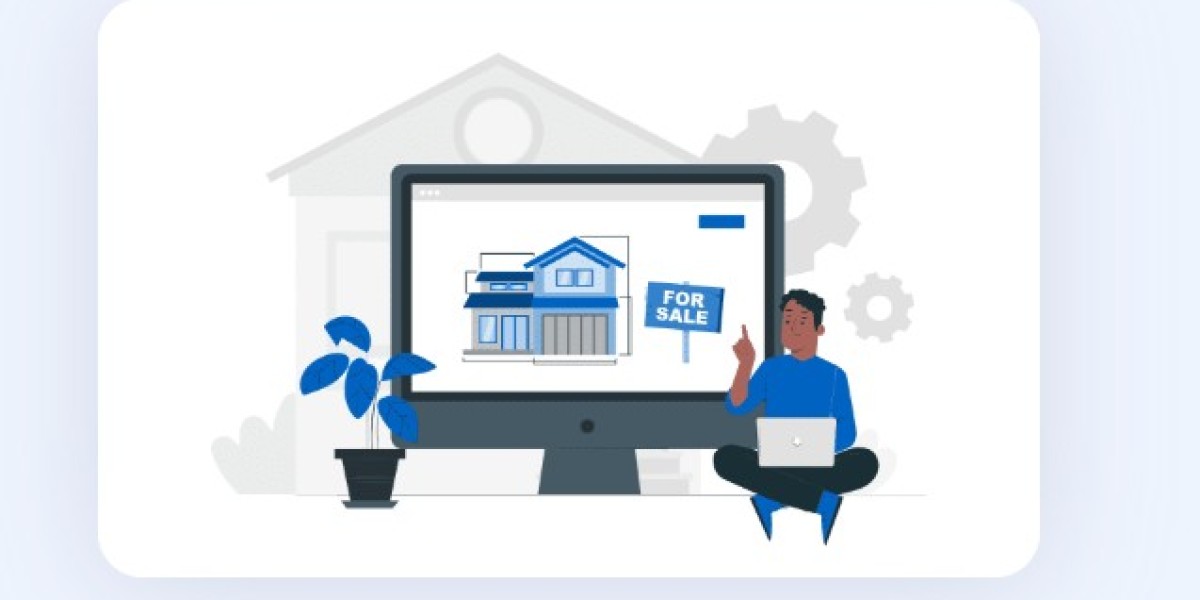The real estate industry is rapidly evolving, and mobile apps are playing a pivotal role in this transformation. Buyers, sellers, renters, and real estate agents alike now rely heavily on mobile devices to browse listings, schedule property tours, and close deals. As a result, having a feature-rich real estate mobile app has become a crucial factor for success in this competitive market. For businesses and developers aiming to create top-notch real estate mobile apps, understanding the key features that drive user engagement and satisfaction is essential.
In this article, we will explore the essential features every real estate mobile app should have to succeed in today's market. We’ll also discuss why these features are important and how they enhance the user experience. If you're considering real estate mobile app development, this guide will provide valuable insights to help you build a high-performing app.
1. User-Friendly Interface
The foundation of any successful real estate mobile app is its user interface (UI). A clean, intuitive, and easy-to-navigate design ensures that users can quickly access the features they need without getting frustrated. A cluttered or overly complicated interface can drive users away.
Key UI elements to include:
- Search Bar: A prominent search bar at the top of the app to allow users to search for properties by location, price range, type, and other filters.
- Clear Categorization: Organize listings by categories such as for-sale, for-rent, or commercial properties to simplify navigation.
- Easy-to-Read Listings: Each property listing should be easy to read, with clear images, concise descriptions, and prominent price tags.
A clean, minimalistic design combined with a simple navigation system will make your app more appealing and easier for users to interact with.
2. Advanced Property Search Filters
A robust search filter system is crucial for helping users find properties that meet their specific needs. By offering detailed search parameters, your app can cater to a wide range of preferences, from budget-conscious buyers to those seeking luxury estates.
Key search filters to include:
- Location: Users should be able to search for properties based on city, neighborhood, or zip code.
- Price Range: Allow users to filter properties within their specified budget range.
- Property Type: Filters for homes, apartments, condos, offices, and commercial properties.
- Number of Bedrooms/Bathrooms: Let users customize their search based on family size or personal preferences.
- Amenities: Filter by features such as pools, garages, pet-friendly properties, or garden spaces.
Having a comprehensive search feature can significantly enhance the app's usability, helping users save time and find properties that are the right fit for them.
3. Interactive Map Integration
An interactive map is a key feature that adds immense value to any real estate app. It allows users to view property locations on a map, helping them visualize the area and assess its proximity to essential amenities such as schools, hospitals, and public transportation.
Features to consider for an interactive map:
- Property Pins: Display each listing with a pin on the map for easy location tracking.
- Neighborhood Insights: Provide users with additional information about the neighborhood, including crime rates, local amenities, and school ratings.
- Map Filters: Allow users to adjust the map to show only properties in their desired location and price range.
Map integration enhances the overall user experience by providing context to the properties listed, making it easier for users to understand the surrounding area and make informed decisions.
4. Virtual Tours and Augmented Reality (AR)
With advancements in technology, offering virtual tours and augmented reality (AR) features has become an excellent way to enhance user experience. Virtual tours allow users to view properties remotely, saving them time and money, especially for those who are relocating or looking for second homes.
Key features:
- 360-Degree Virtual Tours: Users can explore properties by virtually walking through rooms, observing every detail from different angles.
- AR Property Visualization: Augmented reality allows users to virtually stage homes, view different interior designs, or even see how furniture would look in a space.
- Video Walkthroughs: In addition to virtual tours, including video walkthroughs can provide a more personal and interactive experience.
Integrating these advanced technologies into your real estate mobile app development can make your app stand out, especially in a market where convenience is highly valued.
5. Push Notifications
Push notifications are a great way to keep users engaged with your app. Whether it's a price drop on a favorite property or a new listing in their desired neighborhood, real-time notifications can help your app stay top-of-mind and encourage users to return.
Push notification features:
- New Listings: Notify users when new properties matching their preferences are added.
- Price Alerts: Users can set price alerts for properties they are interested in.
- Open House Alerts: Notify users when there is an open house for a property they’ve saved or viewed.
Push notifications allow you to create a more personalized experience, keeping users informed and engaged with your app.
6. Agent and Client Communication
Efficient communication is crucial in the real estate business, and your app should facilitate seamless interactions between users and agents. This feature ensures that potential buyers or renters can easily get in touch with real estate professionals to ask questions, schedule viewings, or make offers.
Communication features to include:
- Chat Functionality: Enable real-time messaging between users and agents.
- Appointment Scheduling: Allow users to schedule property viewings directly through the app.
- Call Integration: Integrate calling options for users to speak directly with agents.
Providing convenient communication channels within the app creates a smooth workflow for both buyers and agents, fostering trust and satisfaction.
7. Mortgage Calculator and Financing Options
One of the most important aspects of buying or renting property is financing. A mortgage calculator helps users estimate their monthly payments based on various factors such as loan amount, interest rate, and loan term.
Additional features to include:
- Loan Pre-Approval: Allow users to check their eligibility for loans or apply for pre-approval through integrated partnerships with banks or lenders.
- Affordability Calculators: Enable users to see which properties are within their budget based on their financial situation.
Having a mortgage calculator and financing options directly in your app will make the buying process smoother and help users make more informed decisions about their purchases.
8. Property Comparison Tool
For users who are unsure between multiple properties, a comparison tool is a great way to provide clarity. This feature allows users to compare key aspects of different properties side by side, including price, amenities, square footage, and more.
Features of a property comparison tool:
- Side-by-Side Comparison: Allow users to select multiple properties and compare their features at a glance.
- Visual Comparison: Display images and videos of the properties for visual comparison.
This feature empowers users to evaluate different options, which helps them make more confident decisions.
9. Secure User Profiles and Authentication
In the real estate market, security is paramount. Users need to trust that their personal information is safe when using the app, especially when sharing sensitive data like contact details, payment information, and browsing history.
Key security features:
- Two-Factor Authentication (2FA): Add an extra layer of security for users logging in to their accounts.
- Encrypted Data: Ensure all user data is encrypted for privacy protection.
- Secure Payment Options: For rental payments or property purchases, provide secure transaction gateways.
Security features build user confidence and make your app a trustworthy platform for real estate transactions.
10. Rating and Review System
A rating and review system can significantly improve the credibility of the listings in your app. It allows users to share their experiences with properties and agents, helping others make more informed choices.
Features to include:
- Property Reviews: Allow users to rate properties based on their experience, which helps other buyers and renters.
- Agent Ratings: Let users rate real estate agents based on their service, responsiveness, and professionalism.
A review system builds trust and community within your app, which is essential for user retention and satisfaction.
11. Integration with Social Media
Social media integration is essential for sharing listings, promoting open houses, and increasing app visibility. Allowing users to share properties directly from your app to platforms like Facebook, Instagram, and Twitter can help your listings reach a wider audience.
Social media features:
- Sharing Listings: Enable users to share property details on their social media accounts with a click of a button.
- Social Media Sign-In: Allow users to sign in with their social media accounts for easier access.
Social media integration also helps increase app engagement and attracts new users through organic sharing.
Conclusion: Why These Features Matter for Real Estate Mobile App Development
In the competitive real estate market, providing a seamless, user-friendly, and feature-rich mobile experience is essential for success. The features outlined in this article not only improve the functionality of your app but also enhance the overall user experience, making it easier for buyers, sellers, and agents to interact with one another and navigate the property market.
Whether you're developing a real estate app for the first time or looking to enhance an existing app, focusing on these core features will ensure your app meets the needs of today’s tech-savvy, mobile-first users. With the right real estate mobile app development strategy, your app can become a valuable tool for users and a competitive asset in the marketplace.
By prioritizing user experience, advanced technologies like AR and virtual tours, secure transactions, and efficient communication tools, your app will be well-positioned for long-term success in the ever-evolving real estate industry.
Naijamatta is a social networking site,
download Naijamatta from Google play store or visit www.naijamatta.com to register. You can post, comment, do voice and video call, join and open group, go live etc. Join Naijamatta family, the Green app.
Click To Download


